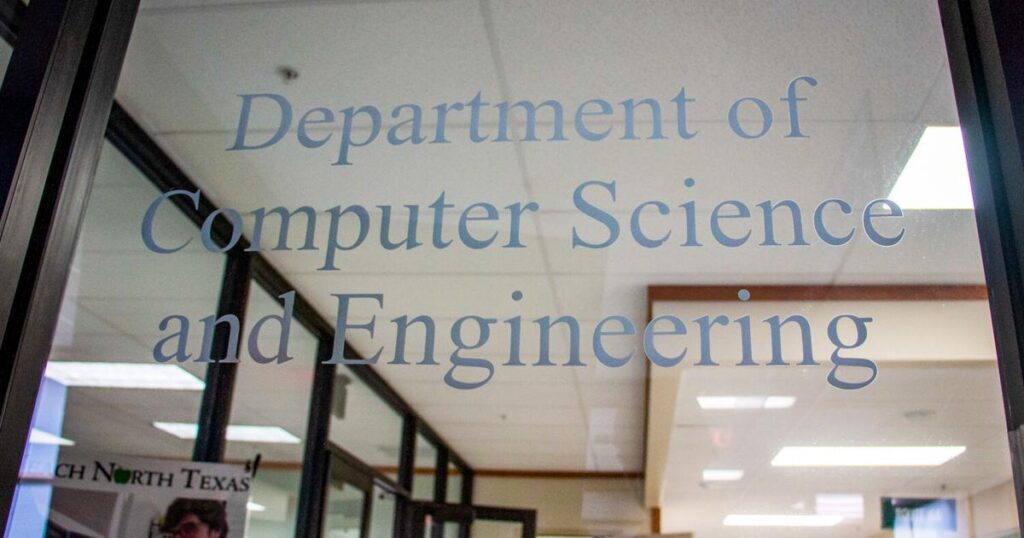The university has been designated by the National Security Agency as a National Center of Academic Excellence in Cyber Defense for the 2028-2029 academic year, marking 25 years of that honor.
This designation was given to the university for its cybersecurity curriculum. The University of North Texas is one of only four schools in Texas and 30 in the nation to receive the 25-year designation from the NSA.
“What this document tells the public, students and industry is that we are meeting the requirements set by the NSA,” said Dr. Ram Dantu, professor of computer science and director of the Center for Information and Cyber Security. Ta. “We have to go through a very rigorous process every year. We have to go through a very rigorous process every year to understand the syllabus, the homework, what kind of things we teach, what courses we teach, what projects we do. whether they are certified or whether they are collaborating with industry, all of which are required to obtain the designation.”
The CAE designation takes into account the practical skills that students learn while studying at university. For example, these students learn how to secure transactions on the blockchain and how to conduct penetration tests that help find flaws and vulnerabilities in security systems. Some of our courses, such as Blockchain and Applications, give students a certificate as a developer, giving them access to further careers in the field after graduation.
Students at the Texas Mathematics and Science Academy, an early college boarding program for high school seniors and seniors, are exposed to the fundamentals of computer science through math and programming, Dantu said.
Fram Abi Njia Yochom is a TAMS graduate and a second lieutenant in the U.S. Army. Yochom is currently pursuing a master's degree in computational and mathematical sciences from Stanford University and is assigned to the U.S. Army Cyber Command.
“During the summer of my junior year at TAMS, I had the opportunity to do an internship at the U.S. Air Force Research Laboratory in Rome, New York,” Yochom said. “I implemented a machine learning model to detect outliers in a system. The basics of mathematics, programming, and computer science he learned at TAMS helped him do well in his internship. .”
Artificial intelligence has become a tool for professionals in the fields of computer science and cyber security. However, AI also poses a threat to the safety of those same systems.
“AI itself is what we tell machines to do, and if what you're teaching them is wrong, it can cause a lot of security concerns,” said Cihan Tunc, assistant professor and CICS member. “There is something called an adversarial attack, where the attacker basically tricks the AI into believing it. [an incorrect input is correct]. That's one of our concerns today. ”
AI relies on training to recognize data and testing to ensure it is providing the correct output. Dantu said that corrupting or fooling this data could corrupt the AI itself and produce erroneous results.
“We have a saying: 'Garbage in, garbage out,'” Tunku says. “If what you're providing isn't completely correct, your training model won't work properly.”
Dantu said the university's computer science curriculum teaches students the importance of considering security at every stage of program creation and AI training.
“Security is not just one course,” Dantu says. “You have to sprinkle it into every aspect of computing. You have to teach it with the hardware, the applications, the operating system. Even when you're teaching about AI, there has to be security there. yeah.”
The CAE designation helps universities become more competitive for research grants, Dantu said. Because receiving the designation requires a rigorous process, many grants are only offered to schools that receive the CAE designation. NSA offers its own grants, and other agencies such as the National Science Foundation also offer other grants that these schools can apply for.
“With this designation, we award a cybersecurity certificate to students who take this curriculum,” Dantu said. “Logos may be used to indicate that they are authorized by the NSA and the Department of Homeland Security.”


